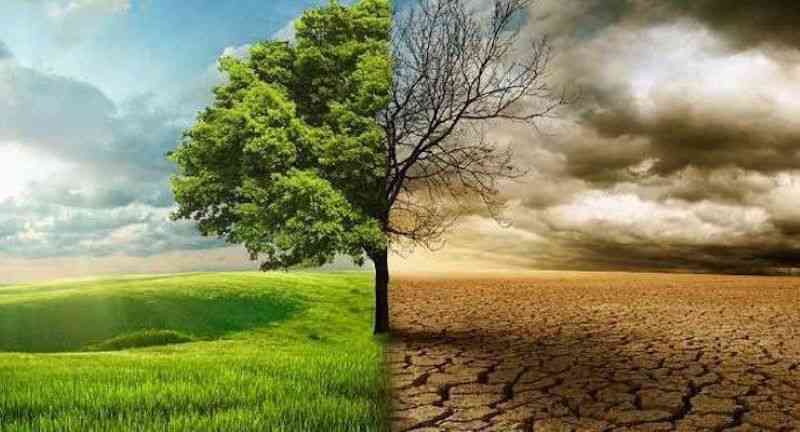
I RECENTLY watched a short video of a member of one of the apostolic sects in Zimbabwe alleging that the rains are not coming because the gods are angry over human transgressions. This reminded me of a conversation I had with a friend who also alleged that the spirits of the oceans and the skies are angry, which is why the world is facing the vagaries of climate change.
Going by these notions would put repentance as the solution to the climate crisis.
When we look at the rapidly unfolding situation before us, it may, however, be time to wake up and smell the coffee as the impact of climate is now happening at an unprecedented rate. Spiritualising the problem is, however, not going to help. It simply throws it back into the debate arena, disrupting practical solutions.
Science is telling us that the greenhouse gas concentrations are rising, pushing global surface temperature upwards. The ocean soaks up most of the heat from global warming. The rate at which the oceans are warming strongly increased over the past two decades, across all depths of the oceans. As oceans warm, their volume increases since water expands as it gets warmer. Melting ice sheets also cause sea levels to rise, threatening coastal and island communities.
In addition, the oceans absorb carbon dioxide, keeping it from the atmosphere. But more carbon dioxide makes the oceans more acidic, which endangers marine life and coral reefs, which are some of the world’s most diverse ecosystems providing for life underwater, while protecting coastal areas by reducing the power of waves hitting the coast and provide a crucial source of income for millions of people.
The past two years have registered many climatic records. East Africa faced the worst drought in 40 years between 2022 and 2023, while southern Africa experienced its hottest temperatures in four decades this February. Globally, 2023 was the warmest year ever with record sea surface temperatures and sea level rise reported in the same year. Extreme weather conditions are destroying lives and livelihoods, thus highlighting the need to ensure everyone is protected by early warning services.
Practical solutions and major political, economic and social changes must happen soon.
The climate crisis is no longer a problem of the future. There is colossal evidence that it started hitting the world badly three decades ago. And like the proverbial frog, the world lay still in the water as the temperatures gradually rose. If the temperature rise was sudden, perhaps the world would have jumped into action.
- Open letter to President Mnangagwa
- Feature: ‘It’s worse right now than under Mugabe’: Sikhala pays the price of opposition in solitary cell
- Masvingo turns down fire tender deal
- Human-wildlife conflict drive African wild dogs to extinction
Keep Reading
But because the situation is slowly on-setting and tepid, there is no need to rush into action, perhaps because the world has not been feeling the danger or it was adapting, and yet the earth is burning.
Conference after another, characterised by reluctance and reticence with treaties and protocols announced after each of those, the world has dragged its feet until today. Why should we be more concerned now than ever before?
The decade 2011-2020 was the warmest on record. Almost all land surface areas are seeing more hot days and heat waves. The increased heat is changing water availability, making it scarcer in many regions.
Global warming is worsening water shortages in already water-stressed regions and is leading to an increased risk of agricultural droughts affecting crops, and ecological droughts increasing the vulnerability of ecosystems. Droughts can cause soil erosion as well as stir destructive sand and dust storms that can move billions of tonnes of sand across continents.
Deserts are growing and expanding, thus diminishing land for agricultural production. Many people now face the threat of not having enough water regularly, while higher temperatures increase heat-related illnesses, thus making working outdoors more difficult. The world is fast becoming inhabitable.
Destructive storms have become more intense and more frequent in many regions. As temperatures rise, more moisture evaporates, which exacerbates extreme rainfall and flooding, causing more destructive storms.
The frequency and extent of tropical storms is also affected by the warming oceans. Cyclones, hurricanes and typhoons feed on warm waters at the ocean surface. Such storms often destroy homes and communities, causing deaths and huge economic losses.
It is not only a water and heat problem. The ecosystem is being rapidly disrupted. Some species on land and in the ocean are facing survival challenges as the temperatures continue to rise.
It is estimated that the world is losing species at a rate 1 000 times greater than at any other time in recorded human history with over a million more species facing the threat of extinction in the next few decades.
Just like big animals, these small creatures are part of the natural ecosystem and play a major contribution to living conditions on Earth.
Every creature has a role that helps plants grow, keeps the air and water clean, and makes sure there is enough food for everyone. Some animals help plants make seeds, while others eat harmful pests.
Erratic rains, poor soil conditions and diminishing small creatures will lead to a rise in hunger and poor nutrition. Fisheries, crops and livestock may be destroyed or become less productive, while marine resources that feed billions of people are at risk.
There are already concerning reports of wildlife succumbing to the effects of climate change in southern Africa. Heat stress can diminish water and grasslands for grazing, causing declining crop yields and affecting livestock.











